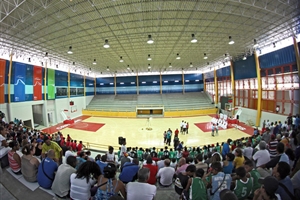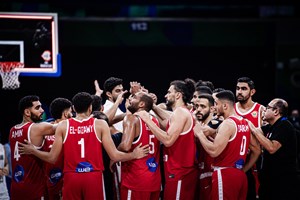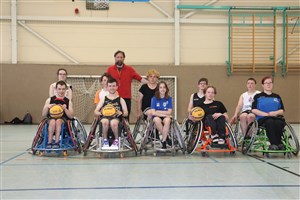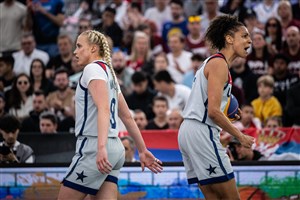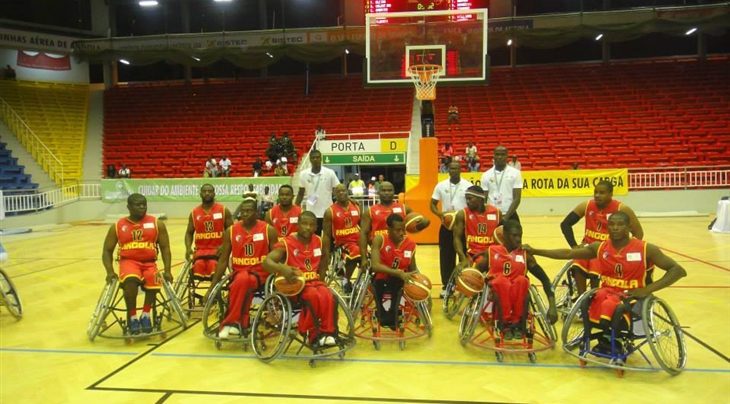
Taking Angolan wheelchair basketball to the next level
LUANDA - After hosting the 2013 African Wheelchair Basketball Championship, the Angolan Paralympic Committee (APC) is aiming to grow the game and spread it across the country's 18 provinces.
Despite finishing bottom of the six-team tournament held last year on home soil, Angola feels it has enough potential and talent to become a top-three team in Africa.
Algeria beat continental powerhouse South Africa 66-56 in the final of last year's continental event to clinch the only place on offer for African teams for the 2014 IWBF Wheelchair Basketball World Championship held in Incheon, South Korea.
In the bronze medal game, Morocco edget out Egypt 71-68 after double overtime, while Nigeria beat hosts Angola 51-48 in the fifth-place play-off.
Now, the Angolans want more.
As a result of the civil war that savaged the country for over three decades - it finished in 2002 - combined with endemic heath problems, a portion of the Angolan population suffered physical disabilities for life, and the APC feels those affected should not be left out.
Official figures suggests registered athletes range in age from 17 to mid-30s and can be found all over the Angola territory.
The interest in Paralympic sports, basketball in particular, is undeniable, although a lot needs to be done.
Antonio Da Luz of the APC told FIBA.com what the future holds for wheelchair basketball in the country and why 2015 is the year for the change.
"Right now we are working hard in order to qualify for the 2015 Africa Paralympic Championship in South Africa," he said.
"2015 is the year that we are expecting to take Angolan wheelchair basketball to next next level.
"Starting in 2015 we will divide the national championship into two regions. The top four of each group will qualify for the Finals, which will involve eight teams in an affordable and quality national championship."
Despite all the good will, the APC official says the organisation needs more funding, and will work in partnership with local governments to develop the game throughout the country.
"Wheelchair basketball is a very expensive sport for us in terms of equipment," he pointed out.
"(A) Lack of facilities suitable for wheelchair basketball is another major concern that we face on a daily basis because of its own particularities.
"In the Africa context, with the exception of South Africa, most countries seek affordable equipment from countries like China, who produce wheelchairs with a cost of $250 USD."
The South African model
Even though South Africa lost to Algeria in the 2013 African Championship final, its programme remains a reference on the African continent, and Da Luz sees it as model for Angola to adopt.
"Wheelchair basketball in South Africa is steps ahead of most African nations because of their organised programmes. They hold two major events: Vodafone Tournament and the national championship. Add to that the fact that they attract a lot sponsorship," he explained.
"Another aspect that makes South African wheelchair basketball successful is the fact that most of their athletes are self-sufficient. Some of them drive to and from practices, they receive support from their families.
"These personal circumstances do not happen in Angola, where most athletes need to rely on public transportation and can't afford to practice on a regular basis.
"Our teams play no more than 20 games, while the South African play around 40 per year.
"Our national championship lasts 12 days and that is the time of the year when players tend to focus in the wheelchair basketball."
But Da Luz and the APC hope this is all about to change.
"Our objective is to join the top-three teams on the continent," he said.
FIBA

